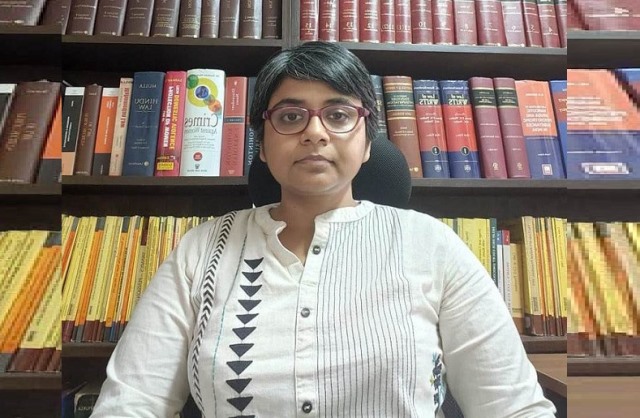Pyoli Swatija, a Supreme Court advocate and rights activist, points out how the remission granted to rape convicts in the Bilkis Bano case overlooked legal norms
Being a feminist advocate I do not subscribe to capital punishment for any crime. Reformation as the ultimate aim of legal punishment. But we have to consider the peculiar facts and circumstances of this case: What was the crime, the circumstances surrounding it and how did the law & order machinery and the criminal justice system deal with it?
Also, from the criminological point of view: does the conduct of the convicts show that they have been reformed? This was not just a case of 12 persons (one of whom has subsequently died) murdering seven people (including two children) and raping five women including a pregnant Bilkis Bano. Bilkis should not be seen as just another woman. She is a Muslim. Whatever happened to her and her relatives during the Gujarat pogrom was due to their religious identity and as per law, identity-based rape and murder is considered graver than rape and murder simpliciter.
About the state of law & order at the time of the crime, recall the Supreme Court’s statement: “When Rome was burning, Nero was busy playing his lyre.” Under those circumstances, the apex court had transferred the cases of Bilkis Bano and Zahira Sheikh from Gujarat to Maharashtra and ordered CBI investigation.
Were the legal parameters for granting remission of sentence met in this case? A bare reading of CrPC and that which has been interpreted by a five-judge SC bench in the Union of India Vs V Sriharan case (2014), in a case of remission, the concerned government will be the government in whose state the trial was conducted and the verdict was given, regardless of the place of occurrence of the crime.
It is a settled law that no writ petition under Article 32 is maintainable against the order of a high court in SC. Writ is maintainable only against the state and courts are not covered under the definition of “state” under Article 12. When the remission case came to Gujarat HC, it clearly held that the Gujarat government did not have the power to consider remission since the trial was held in Maharashtra.
Instead of appealing against this order, the convict approached the Supreme Court under Article 32 and the SC reversed the high court judgement in a writ petition. In my opinion, this 14th May 2002 order of the Supreme Court is per incuriam (not paying attention to relevant statutory provision).
We need to take into account two rulings in remission cases. Article 14 mandates that discretion cannot be exercised arbitrarily. In Laxman Naskar Vs Union of India, SC said that a petition for remission will be considered by the state government only after considering the following five parameters: a) What is the impact of the offense on the society at large; b) Probability of crime being repeated; c) Potential of the convict to commit a crime; d) Fruitful purpose of keeping convict in detention; and e) Socio-economic condition of the convict.
Victim Bilkis Bano has said that she has been repeatedly threatened by the offenders, whenever they have come out on parole. Now they are out and being felicitated. I do not know the socio-economic condition of convicts but the rest four points regarding state discretion clearly demonstrate that they are a threat to society and have a probability to repeat the crime. Where is the reformation after all these years? They have walked free like triumphant victors while Bilkis has lived a nomad’s life.
Second, Under CRPC 432(2), the opinion of the trial court judge has to be solicited for remission. Justice Chandrachud and Justice Aniruddh Bose in Ramchandra Vs State of Chhattisgarh have stated that the state’s decision cannot differ from the trial court judge’s recommendation, except when the judge has not given a reasoned opinion and considering the five parameters of the Laxman Naskar case, there was no option for the state government but to differ from the trial court judge.
We came to know from media reports that the trial court judge clearly said that convicts should not be remitted. How the state dealt with his opinion, we do not know. Then again, CrPC 435 says that remission in any crime that has been investigated by CBI should not be granted without the central government’s consultation. Did they consult the central government? Central government should tell what it opined on the point of remission so that we will know if what the PM spoke of about respecting women on August 15 was followed in practice or not.
This is my opinion as per law. As far as morality is concerned, we are nowadays witnessing the felicitation of convicts by society. We can easily see here the legal system is not different from the societal structure. You cannot expect institutions to remain insulated from society when fascism has gripped the minds of the majority our people. As is the society, so is the justice system. Hope remains only in resistance, in speaking truth to power, in standing in solidarity with the brave-heart Bilkis Bano.
Pyoli Swatija is also affiliated with Women Against Sexual Violence and State Repression, an NGO
As told to Abhishek Srivastava
